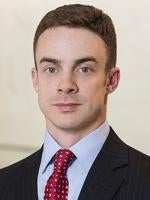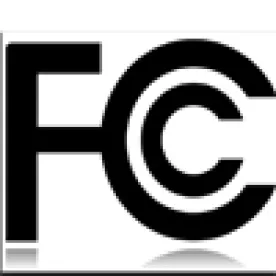Legislative Activity
Election Generally Leaves Telecom-Related Committee Members in Place
The November 8 election saw many of the incumbents on the principal congressional committees involved in the telecommunications sector win reelection. No incumbents on the House Energy and Commerce Committee (House Commerce Committee) lost a general election race, though there is some imminent movement with regard to certain incumbent seats due to other factors such as retirements. On the Republican side, Rep. Joseph Pitts (R-PA) is retiring and Lloyd Smucker (R-PA) has been elected to fill his seat. Similarly, George Holding (R-NC), who beat the incumbent Renee Ellmers (R-NC), will take Ms. Ellmers’ seat. On the Democratic side, Rep. Lois Capps (D-CA) is retiring and Salud Carbajal will fill her seat in Congress. On the Senate Commerce, Science, and Transportation Committee (Senate Commerce Committee), the incumbent Kelly Ayotte (R-NH) lost to Maggie Hassan (D-NH). Sen. John Thune (R-SD), chairman of the committee, won reelection.
On the House Judiciary Committee all members won reelection except Rep. Randy Forbes (R-VA), who lost the primary race. Donald McEachin (D-VA) has won that seat in the general election. Finally, on the Senate Committee on the Judiciary the general election did not displace any of the current committee members. Sens. Patrick Leahy (D-VT) and Mike Lee (R-UT) both won reelection.
House to Consider Anti-Spoofing and Rural Call Quality Bills
On November 14, the U.S. House of Representatives is scheduled to consider two bills under suspension of the rules, the procedure which streamlines consideration of bills with wide support and that are generally uncontroversial. The first bill to be considered is H.R.2669, the Anti-Spoofing Act of 2016. The bill, previously discussed here, targets the practice of caller identification (caller ID) “spoofing,” a practice whereby callers falsify or disguise their caller ID information, often with the intention of tricking or eluding consumers or law enforcement officials. The bill passed the House Commerce Committee on September 21. The second bill is H.R.2566, the Improving Rural Call Quality and Reliability Act of 2015. The bill requires certain providers to register with the Federal Communications Commission (FCC) and comply with service quality standards set by the agency in order to improve call quality from long distance or wireless call in rural areas throughout the country. The bill passed the House Commerce Committee on September 21.
This Week’s Hearings:
-
Tuesday, November 15: The Subcommittee on Commerce, Manufacturing, and Trade of the House Commerce Committee will hold a hearing entitled “Disrupter Series: Self-Driving Cars.” Witnesses include Mitch Bainwol, President and CEO, Alliance of Automobile Manufacturers; Laura MacCleery, Vice President of Consumer Policy and Mobilization, Consumer Reports; Dr. Mark Rosekind, Administrator, National Highway Traffic Safety Administration; Kirk Steudle, Chief Deputy Director, Michigan Department of Transportation; and Ann Wilson, Senior Vice President, Motor and Equipment Manufacturers Association.
-
Wednesday, November 16: The Subcommittee on Communications and Technology and the Subcommittee on Commerce, Manufacturing, and Trade of the House Commerce Committee will hold a joint hearing entitled “Understanding the Role of Connected Devices in Recent Cyber Attacks.” The hearing has been called to examine how Internet of Things connected devices can be used in cyberattacks to deny access to websites or disrupt online services, according to the press release. The hearing follows the October 2016 distributed denial-of-service (DDos) attacks waged against Dyn, a global Internet routing company, which disrupted Internet access for millions of users through the use of infected Internet-connected devices. The witness list has not yet been publicly released.
-
Wednesday, November 16: The Senate Commerce Committee will hold a hearing entitled “Exploring Augmented Reality.” The hearing will discuss, among other things, the potential applications and policy considerations of this technology. Witnesses include Brian Blau, Research Vice President, Gartner; John Hanke, Chief Executive Officer, Niantic, Inc.; Brian Mullins, C-Founder and Chief Executive officer, DAQRI; Stanley Pierre-Louis, General Counsel, Entertainment Software Association; and Ryan Calo, Assistant Professor of Law, University of Washington.
-
Wednesday, November 16: The Transportation, Housing and Urban Development, and Related Agencies Subcommittee of the Senate Committee on Appropriations will hold a hearing entitled “The Automated and Self-Driving Vehicle Revolution: What is the Role of Government?” Witnesses include Mark Rosekind, Administrator, National Highway Traffic Safety Administration; Deborah Hersman, President and CEO, National Safety Council; Paul Brubaker, President and CEO, Alliance for Transportation Innovation; and Nidhi Kalra, Co-Director, RAND Center for Decision Making under Certainty.
Regulatory Activity
FCC November 17 Open Meeting Agenda Includes Business Data Services (Special Access) Item
On Nov. 10—two days post-election—the FCC announced it will hold an Open Meeting on Thursday, November 17 to consider the following items:
-
Universal Service Reform – Mobility Fund, et al. The FCC will consider a Report and Order that would “adopt rules for the second phase of the Mobility Fund, which would provide ongoing universal service support dedicated to expanding the availability of mobile broadband networks.”
-
Roaming Obligations of Commercial Mobile Service Providers and Regulatory Classification of Voice over LTE Service. The FCC will consider a Notice of Proposed Rulemaking that would “seek comment on proposals to implement a unified roaming standard and to classify Voice over LTE.”
-
Business Data Services in an Internet Protocol Environment, et al. The FCC will consider a Report and Order and Second Further Notice of Proposed Rulemaking that would “allow for light-touch regulation of packet-based Business Data Services and retain and update price cap regulation for lower-bandwidth TDM-based Business Data Services to ensure that lack of competition does not unfairly harm commercial customers or the consumers who rely upon these services.”
-
Video Description: Implementation of the Twenty-First Century Communications and Video Accessibility Act of 2010. The FCC will consider a Report and Order that “addresses the amount of video described programming required to be made available to consumers.”
FCC Chairman Tom Wheeler posted to the FCC blog on October 27 discussing the items above. The FCC’s Open Meeting will commence at 10:30 a.m. in the Commission Meeting Room at the FCC’s headquarters at 445 12th Street, S.W., Washington, D.C., and will be streamed live at fcc.gov/live.
Comments Due December 8 on FCC’s Proposed Changes to Wireless Emergency Alerts
The FCC released on September 29 a Report and Order and Further Notice of Proposed Rulemaking in which the FCC adopted rules to “promote the utility of [Wireless Emergency Alerts (WEA)] for communities as a life-saving tool,” and sought comment on proposals to “ensure the continued provision of effective WEA Alert Messages while leveraging advancements in technology to improve WEA’s multimedia, multilingual and geo-targeting capabilities.” The FCC explained that the WEA system is “a tool for authorized federal, state and local government entities” to direct alerts including “severe weather warnings, evacuate and shelter-in place alerts, and [missing persons]” alerts to “WEA-capable mobile devices” of WEA-participating wireless service providers.
The FCC is now seeking comment on possible changes to the WEA system including: “the potential benefits of requiring [WEA-participating wireless service providers] to support Alert Messages in languages other than English and Spanish;” whether to “require support for certain multimedia content, including thumbnail-sized images and hazard symbols, in Public Safety Messages on 4G LTE and future networks;” and how to “enhance WEA’s support” for gathering information from the community to “facilitate emergency managers’ response planning efforts,” among other potential changes. Comments on the FCC’s questions and proposals are due December 8, and reply comments are due January 9, 2017, according to a publication in the Federal Register.
FCC to Host Robocall Webinar December 14
On December 14, from 1 to 2 PM, the FCC will host a “webinar on robocalls” in which it will “explain the FCC’s role” under the Telephone Consumer Protection Act in “helping consumers stop unwanted calls, text messages and faxes,” and “the steps consumers can take to protect themselves from and/or decrease the amount of robocalls they receive,” according to an FCC Public Notice. A “detailed agenda” will be released in advance of the webinar. Consumers may participate in the webinar by WebEx (audio and video) by registering here, or may participate by conference call using the information provided here.





 />i
/>i

